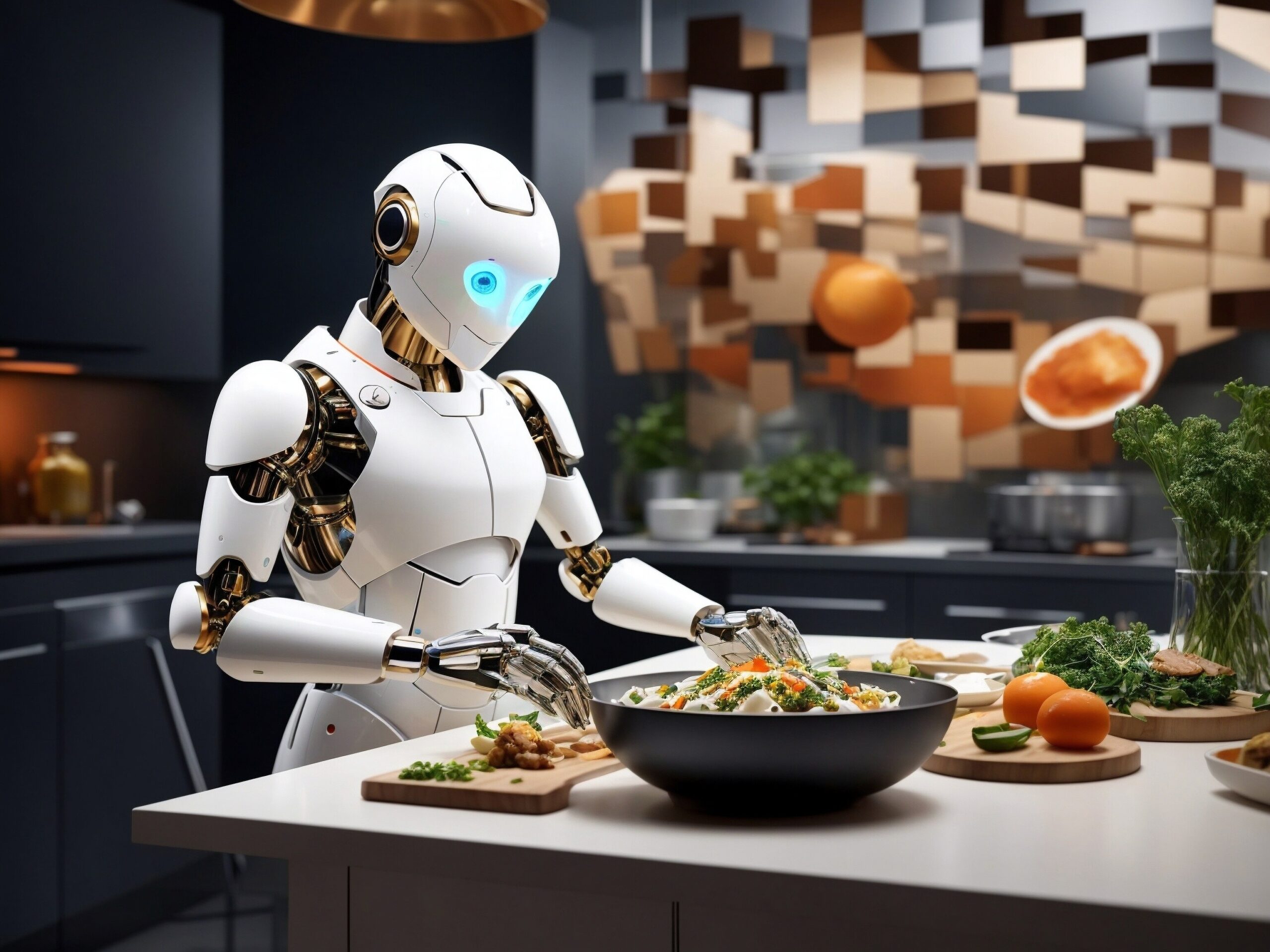In recent years, the concept of a “smart home” has rapidly evolved from a futuristic idea to a tangible reality. At the heart of this transformation is artificial intelligence (AI), which is seamlessly integrating with home domotics—also known as home automation systems—to create living spaces that are more efficient, convenient, and personalized than ever before. Here’s how AI is making its mark on home domotics and what it means for the future of our homes.
1. Intelligent Climate Control
AI-powered systems are revolutionizing the way we manage the climate in our homes. Gone are the days of manually adjusting thermostats. AI-enabled thermostats, like Google Nest, learn your daily routines and preferences, adjusting the temperature automatically to optimize comfort and energy efficiency. These systems can even predict changes in weather and adjust the climate control settings accordingly, ensuring that your home is always at the perfect temperature.
2. Enhanced Security Systems
Security is a top priority for any homeowner, and AI is significantly enhancing home security systems. Modern AI-driven cameras can distinguish between humans, animals, and objects, reducing false alarms and improving response times. They can also learn the habits of household members and identify unusual activity, sending alerts directly to your smartphone if something seems off. Facial recognition technology, powered by AI, is also being integrated into doorbell cameras and locks, allowing for a truly personalized and secure home entry system.
3. Voice-Activated Assistants
Voice assistants like Amazon’s Alexa, Google Assistant, and Apple’s Siri are perhaps the most visible examples of AI in home domotics. These assistants can control various aspects of your home—from lights and music to appliances and security systems—using simple voice commands. As these AI systems become more sophisticated, they are learning to understand context, tone, and even emotion, making interactions more natural and intuitive.
4. Smart Lighting Systems
AI is also making its way into lighting systems, creating environments that can adapt to your needs and moods. Smart lighting systems can adjust brightness and color based on the time of day or the activity you’re engaged in. For instance, they can dim lights gradually as you wind down for bed, or brighten them in the morning to help you wake up. AI can also integrate lighting with other home systems, such as security, ensuring that lights turn on or off automatically when you leave or return home.
5. Energy Management and Sustainability
One of the most significant benefits of integrating AI into home domotics is the potential for energy savings and sustainability. AI systems can monitor and analyze energy usage patterns, making real-time adjustments to minimize waste. For example, AI can automatically turn off lights, appliances, and heating or cooling systems in unoccupied rooms. It can also optimize the use of renewable energy sources, like solar panels, by predicting energy needs and storage capacities.
6. Personalized Home Experiences
AI allows for a level of personalization in home domotics that was previously unimaginable. Smart homes can now learn the preferences and habits of their occupants, adjusting settings to suit individual needs. Whether it’s playing your favorite music when you enter a room, adjusting the lighting to your preferred level, or setting up a home cinema experience with a single command, AI can create a truly customized living environment.
7. The Future of AI in Home Domotics
As AI continues to advance, the possibilities for its integration into home domotics are virtually limitless. We can expect future smart homes to be even more intuitive, responsive, and self-sufficient. AI could enable homes to anticipate our needs before we even express them, create adaptive environments that evolve with us, and contribute to a more sustainable and efficient world.
Conclusion
The integration of AI into home domotics is transforming the way we live, offering unprecedented levels of convenience, security, and personalization. As technology continues to evolve, AI will undoubtedly play an even more central role in shaping the homes of the future, making them smarter, more efficient, and more attuned to our needs. Whether you’re a tech enthusiast or simply looking to make your home more comfortable, AI-powered home domotics is an exciting frontier worth exploring.

